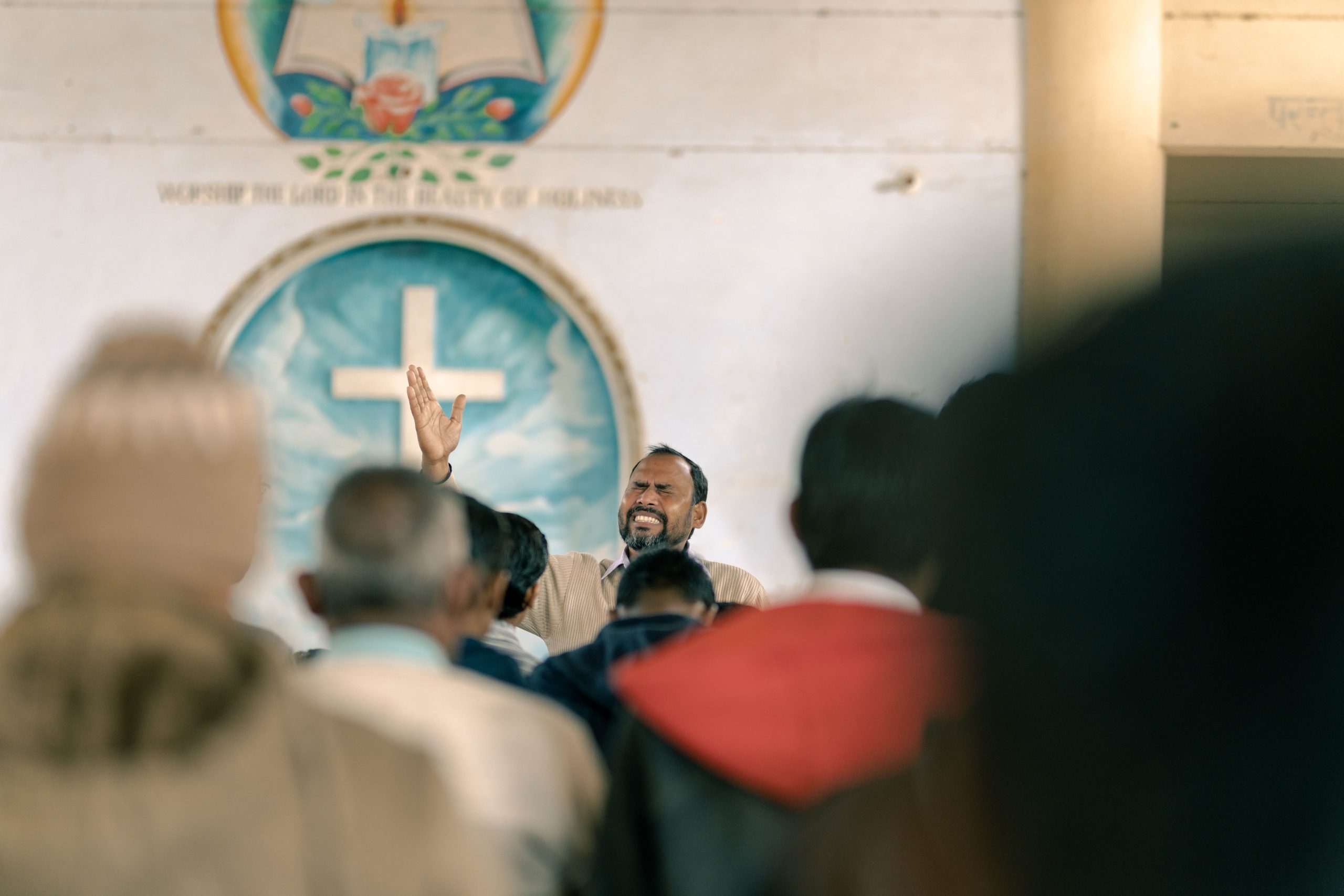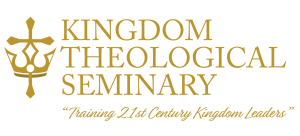Master of Theology and Leadership

The Master of Theology and Leadership (MTL) is a specialized program that provides a foundation in both theology and leadership. It offers biblical tools for critical reflection and practice.

The Master of Theology and Leadership (MTL) is a specialized master’s program that provides you both a foundation in theology and leadership. The program provides the tools for biblical studies and effective leadership.
the MASTER OF Theology and Leadership
The Master of Theology and Leadership program helps strengthen leaders to think theologically. It also offers practical tools for organizational development. This degree invites leaders from a variety of contexts, including non-profit, for-profit, and the faith-based communities.
The Master of Theology and Leadership program uniquely couples theology and leadership.It builds the student’s awareness of Christian traditions and deepens their insight for effective leadership in the church and society.
Courses
The Master of Theology and Leadership program contains the equivalent of 90 credit hours. These 90 credit hours are comprised of 27 required courses and 3 elective courses from the Leadership electives.
THEOLOGICAL REQUIRED COURSES
This course is designed to expand one’s exegetical skills through the interpretation of Old Testament narrative. It will expand one’s understanding of genre and the methods used to interpret Old Testament narrative and poetry from a literary perspective. The course is also designed to understand and be able to employ data from ancient Near Eastern culture in the interpretation of Genesis through Malachi. This course will assist the learner in applying Old Testament theology to modern biblical interpretation.
This course is designed to expand one’s exegetical skills through the interpretation of Old Testament narrative. It will expand one’s understanding of genre and the methods used to interpret Old Testament narrative and poetry from a literary perspective. The course is also designed to understand and be able to employ data from ancient Near Eastern culture in the interpretation of Genesis through Malachi. This course will assist the learner in applying Old Testament theology to modern biblical interpretation.
New Testament I will be devoted to surveying the Gospels and the book of Acts. This course is designed to be an introduction to the books of the New Testament, with special emphasis on the life, teachings, and redemptive work of Christ; the founding and growth of the church. On the basis of the biblical text, parallel readings, projects, and lectures, the events and messages of the New Testament will be portrayed against their historical and cultural setting.
New Testament II will be devoted to surveying the Epistles and Revelation. This course is designed to be an introduction to the books of the New Testament with special emphasis on the life, teachings, and redemptive work of Christ; the founding and growth of the church; and the teachings of the epistles and Revelation. On the basis of the biblical text, parallel readings, projects, and lectures, the events and messages of the New Testament will be portrayed against their historical and cultural setting.
This course is designed to give you a concise introduction to the nature, history, and methodology of systematic theology. It will also provide a helpful stimulus in understanding the relationship between the practice of one’s faith and the belief context into which that practice fits. The course will focus on the nature of a theological vision, the inspiration and authority of scripture, the interpretation of those scriptures, and the nature of the God whom we worship.
This course will build upon the theological doctrinal tenets of Systematic Theology I, allowing the learner to gain deeper insights to understanding the basics of theology from redemption to glorification, soteriology, ecclesiology, and eschatology and how these doctrines are applied in one’s personal ministry. Systematic Theology II formulates an orderly, rational, and coherent account of the doctrines of the Christian faith. It addresses issues such as what the Bible teaches about certain topics or what is true about God and His universe. It also builds on biblical disciplines, church history, as well as biblical and historical theology. Systematic theology shares its systematic tasks with other disciplines such as constructive theology, dogmatics, ethics, apologetics, and philosophy of religion.
This course includes a study of the principles of biblical interpretation, an introduction to the major resources available as an aid to biblical interpretation, and an exegetical study of selected passages from the various genres of biblical literature. Some attention is directed to current issues in biblical hermeneutics, but the major focus of the course is practical in nature. The goal of the course is that students develop a sound methodology for exegesis of the biblical texts.
This is a foundational course on biblical interpretation that will provide students with the basic exegetical tools required to interpret the biblical text. The student will learn to recognize and work with the different literary genres of the Bible and will gain an overview of various hermeneutical approaches to scripture. In the process, the student will be introduced to various research tools, methods, resources and practical skills for interpretation in order to appropriate the Bible well in our contemporary context.
This course is an introduction to Christian apologetics and its relationship to evangelism. The course will teach the biblical, theological, and historical foundations of Christian apologetics. Additionally, the course will serve as a primer for cultural exegesis and cultural hermeneutics. The goal is to equip students with the critical analytical tools to engage contemporary cultural issues as related to matters of faith. Topics include comparative worldview, science and faith, secularism, aesthetics, and ethics. Through required and recommended readings, online discussions, and lectures, the student will gain a clearer understanding of how to navigate and respond pastorally to some of today’s most challenging issues while at the same time formulating a cohesive Christian response to them.
The course will cover the history of Christianity from its inception to the Protestant Reformation of the sixteenth century. We will survey the major movements, doctrines, persons, and institutions that arose within the church and affected its development during this time. Our emphasis will be the development of a doctrinal understanding in the church, as well as careful study of select key individuals whose lives should inspire us to biblical faithfulness today.
The course will cover the history of Christianity and Christian thought from the Protestant Reformation of the sixteenth century to the present. We will survey the major movements, doctrines, persons, and institutions that arose within the church and affected its development during this time. Our emphasis will be the development of a doctrinal understanding in the church as well as careful study of select key individuals whose lives should inspire us to biblical faithfulness today.
This course will explore Christianity in light of cultural distortions and the Kingdom of God. We will examine the modern-day church and how greatly it has been impacted by the historical watersheds of history, beginning with Romanization, followed by Europeanization, Colonization, Westernization, and Americanization of the gospel. The influences of these historical epochs have greatly altered the original message of Jesus and the Kingdom of God in its Jewish context. The church continued to develop but became less Jewish in its interpretation of scripture and more European in its practices and images. This course will also revisit some doctrinal distortions and examine the dispensations of the church and its reformations to help to provide insight and enlightenment into the abuses of the watersheds and the power that the pure gospel of the Kingdom of God offers.
This course (in conjunction with Greek II) offers an intensive introduction to the fundamentals of Greek for the study of the New Testament. It is designed for theological students who wish to move quickly into the study of the Bible in the original languages. The course will focus on introductory grammar and vocabulary of New Testament Greek and will prepare the student for subsequent study of syntax and exegesis.
This course (in conjunction with Greek I) offers an intensive introduction to the fundamentals of Greek for the study of the New Testament. It is designed for theological students who wish to move quickly into the study of the Bible in the original languages. The course will focus on introductory grammar and vocabulary of New Testament Greek and will prepare the student for subsequent study of syntax and exegesis.
This course (in conjunction with Hebrew II) is an introduction to biblical Hebrew that is designed to equip the student with a basic vocabulary and an understanding of the essential principles of phonology, morphology, and syntax. The Old Testament, which we accept as the Word of God, was written originally in the Hebrew and Aramaic languages of the ancient Near East. Students of scripture who wish to heighten their expertise in the exposition of the literature of the Old Testament must have some acquaintance with its original languages. Whether in the realm of preaching, teaching, or translation, students must obtain a certain degree of proficiency in the biblical languages if they are to be properly prepared for ministry.
This course (in conjunction with Hebrew I) is an introduction to biblical Hebrew that is designed to equip the student with a basic vocabulary and an understanding of the essential principles of phonology, morphology, and syntax. The Old Testament, which we accept as the Word of God, was written originally in the Hebrew and Aramaic languages of the ancient Near East. Students of scripture who wish to heighten their expertise in the exposition of the literature of the Old Testament must have some acquaintance with its original languages. Whether in the realm of preaching, teaching, or translation, students must obtain a certain degree of proficiency in the biblical languages if they are to be properly prepared for ministry.
LEADERSHIP REQUIRED COURSES
In this course, students will learn critical skills, and gain valuable tools, for understanding and leading themselves and engaging with others. Topics include: emotional intelligence and increasing your EQ; self-leadership and enhancing one’s skills to discover ones why and purpose, self-awareness; self-knowledge through self-discovery assessments; personality typology and the ability to differentiate personality traits from others; empathy; and relational understanding within community.
Collaboration and teamwork are important to success in many areas of life. Effective teams produce results. The dynamics of an effective team and knowing your role in it is essential. In this course, students will learn to identify the principles essential to healthy teams in order to achieve the results needed. They will also learn techniques to develop trust and respect in diverse contexts as diversity in the marketplace is growing. Finally, students will gain the ability to implement processes that allow teams to focus on organizational vision, goals and results.
In this course, students will learn the following: how to clarify problems, identify their key elements and apply various strategies to find creative solutions. Moreover, this course will enhance the student’s critical thinking and reasoning skills. Developing these skills will set students apart in the marketplace. This course dissects the components of problems and helps students to interpret them based on their perspectives. Students are introduced to the processes of logical reasoning to interpret problems and learn how to evaluate the quality of reasoning behind arguments, interpretations, and/or beliefs.
This course will provide the learner with the necessary skills and tools to become a true servant leader. The servant leadership model can positively impact human satisfaction in any organization, thereby increasing its productivity. Putting people in the first place, a servant leader deflects attention from himself and empowers every member of the team. By empowering others, the leaders find their power and become the place of authority.
Traditional models and theories of leadership are becoming increasingly ineffective and obsolete in the modern, competitive, and global context. Thus course will explore the leadership movement that is replacing top-down, authoritative styles of leadership with those that place as much emphasis on the act of followership and emphasize emotional intelligence, empathy, and other often overlooked human factors that impact the leader-follower paradigm. Students will examine the principles and practices that contribute to the incarnational style of leadership, including the traits of incarnational leadership, the relationship between leaders who adopt this style and their followers, and the contexts in which this leadership style should be employed.
For decades, leadership theories have emphasized the characteristics, skills, and abilities necessary to be possessed by those who either desire to lead or found themselves in the leadership role. However, increasing emphasis is being placed upon the idea of followership and how it impacts the leadership process. In addition to examining traditional models and theories of leadership, this course will examine the relationship between leadership and followership, will provide practical examples of the models presented, and provide guidance for identifying and modifying individual leadership styles.
LEADERSHIP ELECTIVE REQUIRED COURSES
SELECT ANY 3 OF THE FOLLOWING 5 COURSES
The concept of leadership is evolving. Leadership trends are quickly moving away from the controlling, position-based power model of the 20th century and toward models that rely upon authenticity, emotional intelligence, and employee buy-in. These trends have been developed to achieve greater organizational success. This course will examine several leadership modes and the best contexts in which to utilize them. Students will also explore this current shift in leadership thought and examine the trends and issues contributing it.
What does it take to lead an organization? What systems are required and what roles must exist? What issues have the potential to undermine the success of an organization and destroy it from the inside out? What leadership principles have become obsolete? Which principles continue to stand the test of time and, if adhered to, ensure organizational success? This course examines the issues that most commonly impact organizations and provides insight and guidance into possible solutions.
In today’s competitive and fast-paced business environment, change is a constant. Thus, it is imperative that leaders, managers, and front-line employees learn how to embrace and thrive in a business context that is in constant flux. How is change implemented and managed? What best practices should be employed to successfully influence change? What models should leaders utilize to lead change initiatives within their organizations? This course examines both effective and ineffective cases of organizational change and the latest, evidence-based theories of organizational change.
No one will argue that in today’s competitive market, the ability to differentiate one’s product from the rest of the field is key to long-term business success. However, many times, a great product just isn’t enough. The reality is that in a world where quality products abound and worldwide shipping and receipt times are a fraction of what they used to be, the one factor that can cause a business to sink or swim is service. It is in this arena that the Walt Disney Company has set itself apart. This course provides an in-depth analysis of the “Disney Experience” and provides a solid framework upon which to create the customer service experience you wish to achieve within your business.
Master of Theology and Leadership Degree Plan
Each module represents one 8-week session of classes. Each module also contains 4 required practical ministry seminars. 27 required courses and 3 elective courses
YEAR 1
Module 1
- Old Testament Survey I Advanced
- New Testament Survey I Advanced
Module 2
- Old Testament Survey II Advanced
- New Testament Survey II Advanced
Module 3
- Introduction to Hebrew I
- Self Leadership
Module 4
- Introduction to Hebrew II
- Team Building
Module 5
- Introduction to Greek I
- Problem-solving
Module 6
- Introduction to Greek II
- Servant Leadership
YEAR 2
Module 7
- Biblical Hermeneutics
- Incarnational Leadership
Module 8
- Biblical Exegesis
- Disruptive Change Leadership
Module 9
- Systematic Theology I Advanced
- Leadership Theories
Module 10
- Systematic Theology II Advanced
- Strategic Leadership
Module 11
- Apologetics
- Administrative Leadership
Module 12
- Church History I
- Organizational Leadership
YEAR 3
Module 13
- Church History II
- Organizational Theory and Design
Module 14
- Church History III
- Organizational Change
Module 15
- Customer Service: The Experience – The 5 Principles of Disney Service and Relationship Excellence
- Strategic Planning
ADDITIONAL PROGRAM INFORMATION

- 2 courses per session (one session is equivalent to 8 weeks)
- 12 courses per year
- With special approval you can get access to take 15 courses per year
- Midterm
- Final exam
- Reflection papers from weekend lectures (4 per course)
- Final paper
- Weekly “Think Tank” discussions

How Tuition is Estimated
- For the Master of Theology and Leadership degree, courses are $425 per course.
For additional tuition and fees information, visit Tuition & Fees.

Upon receipt of your application and application fee, your application will be reviewed by the Academic Committee. Following the recommendations of the Academic Committee, an Admission Counselor will contact you via email with the results and follow up actions.

The Master of Divinity (M.Div.) is a professional degree for the pastoral profession. It is a high-level degree that provides a well-rounded theological education for anyone seeking a theological education.

The Master of Kingdom Theology (MKT) is our featured and uniquely offered Kingdom degree program. This program is based upon the original Kingdom message in its Jewish context.

The Master of Urban Church Growth (MUCG) focuses upon the development of a biblical Kingdom framework for the evangelistic mission of the church.

The Master of Practical Ministry (MPM) is an advanced degree that is equivalent to the M.Div. but is designed to fully prepare learners for practical ministry in the local church.

The Doctor of Ministry (D.Min) is the highest level professional degree that prepares ministry professionals for effective, full-time ministry.

The Doctor of Kingdom Theology (D.KT) degree is an academic degree that blends academics and Kingdom-based ministry. This degree is designed to provide the learner a deep dive into the Kingdom of God based upon its original Jewish context.




